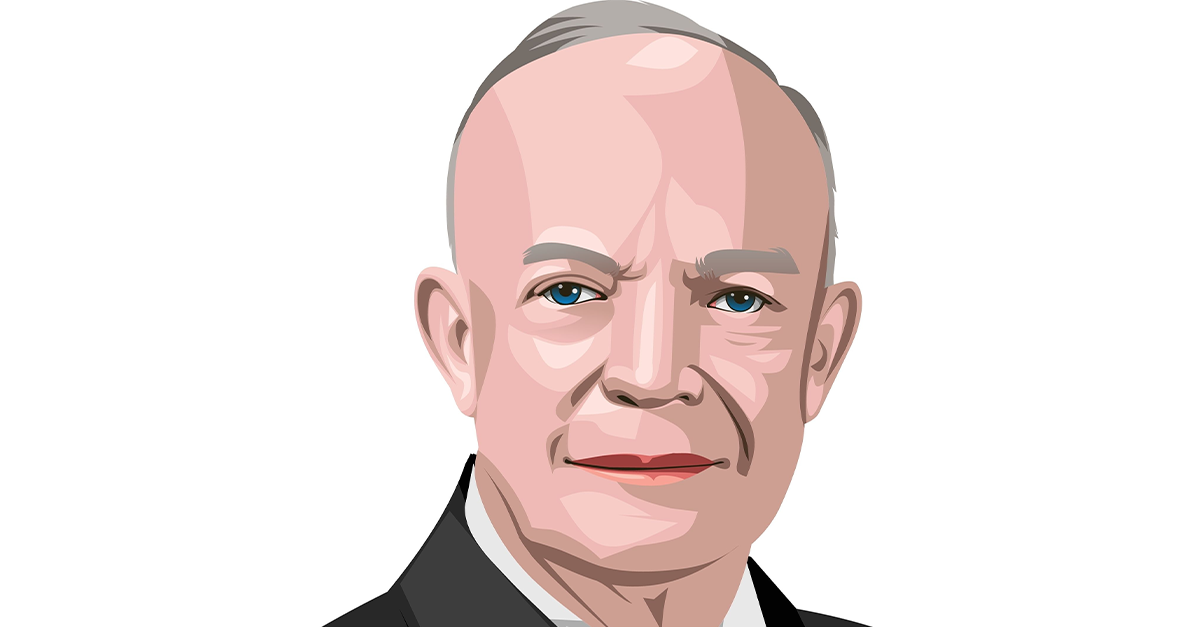


Get a free copy of Parental Rights & Education when you subscribe to our newsletter!

“Eisenhower’s efforts to bring a biblical understanding of the importance of faith in God into the public life of the American people was driven, in part, because he viewed it as an ‘essential foundation stone’ of our constitutional republic.”
–WILLIAM WOLFE
Did you know that the United States had a President who was baptized while in office? There was only one, so far, in our entire national history. Who was it? Dwight D. Eisenhower, our 34th President.
“On February 1, 1953, just 10 days after his inauguration, Eisenhower was baptized and welcomed into the National Presbyterian Church by the Rev. Edward Elson. Eisenhower remains the only president ever to have been baptized while in office, and his work to link faith and American identity has influenced political debate in the country for half a century since.”
Now, President Eisenhower is perhaps best known for his military leadership during World War II. His record of courageous and effective leadership ultimately elevated him to the position of Supreme Commander of the Allied Forces. In this post, he oversaw the D-Day invasion of 1944, directing the troops and operation that served as one of the most decisive victories for the Allied Forces in the European theater.
The National Archives records that “Against a tense backdrop of uncertain weather forecasts, disagreements in strategy, and related timing dilemmas predicated on the need for optimal tidal conditions, Eisenhower decided before dawn on June 5 to proceed with [Operation] Overlord. Later that same afternoon, he scribbled a note intended for release, accepting responsibility for the decision to launch the invasion and full blame should the effort to create a beachhead on the Normandy coast fail.”
Eisenhower’s message to the brave men who were about to risk — and give — their lives to beat back the Nazi invasion is deeply inspiring and shows his Christian character. He wrote:
“Soldiers, Sailors, and Airmen of the Allied Expeditionary Force!
You are about to embark upon the Great Crusade, toward which we have striven these many months. The eyes of the world are upon you. The hope and prayers of liberty-loving people everywhere march with you…Your task will not be an easy one. Your enemy is well trained, well equipped and battle-hardened. He will fight savagely…I have full confidence in your courage, devotion to duty and skill in battle. We will accept nothing less than full Victory!
Good luck! And let us beseech the blessing of Almighty God upon this great and noble undertaking.”
Eisenhower was a man in authority who knew he served under a higher authority — that of the “Almighty God.”
While Eisenhower grew up in a religious family, and his faith shaped his entire life and military career (as seen above), it wasn’t until he became President that he finally decided to publicly, and humbly, display submission to Christ in the act of baptism.
According to the Eisenhower Presidential Library,
“When Dwight D. Eisenhower entered the political arena in 1952 he had never belonged to any organized church. One reason he gave for this was the fact that he was subject to constant relocation during his military career. However, he believed himself to be a ‘deeply religious’ man. After his election as President he was baptized and joined the National Presbyterian Church. The Eisenhowers frequently attended this church during the eight years of his administration.”
But Eisenhower didn’t keep his faith “personal” or “private.” He knew that Christ is Lord of all, not just his heart. He knew that Christ was the Lord of the public square as well.
So, during his service in the highest office of our land, he took efforts to ensure our nation formally acknowledged the Lordship of Christ. The Eisenhower Library also records that
“After being sworn in as President on January 20, 1953, Dwight D. Eisenhower began his first Inaugural Address with a prayer he had composed. During his administration, the phrase ‘under God’ was added to the Pledge of Allegiance and Congress adopted ‘In God We Trust’ as our national motto.”
Eisenhower’s efforts to bring a biblical understanding of the importance of faith in God into the public life of the American people was driven, in part, because he viewed it as an “essential foundation stone” of our constitutional republic.
When we consider the Christian heritage of America, few other Presidents have embodied what it looks like to unapologetically submit to Christ even as they serve in the most powerful political office in the world.
From honoring God before entering battle and being baptized as President to leading the charge in adding “under God” to the Pledge of Allegiance and adopting “In God We Trust” as our national motto, Eisenhower’s life and service gives us a clear picture of a man who submitted to Christ in all things — including politics.
In his 1960 annual address to Congress, President Eisenhower reminded a group of some of the most powerful people in the world that “The steady purpose of our society is to assure justice, before God.”
This must be our goal today. We pursue this by following in the footsteps of faithful Christians who acknowledged that God is Lord of all, even politics, and ordered their lives accordingly. May we all have the faith, and courage, to do the same.
Ready to dive deeper into the intersection of faith and policy? Head over to our Theology of Politics series page where we’ve published several long-form pieces that will help Christians navigate where their faith should direct them on political issues.

Notifications